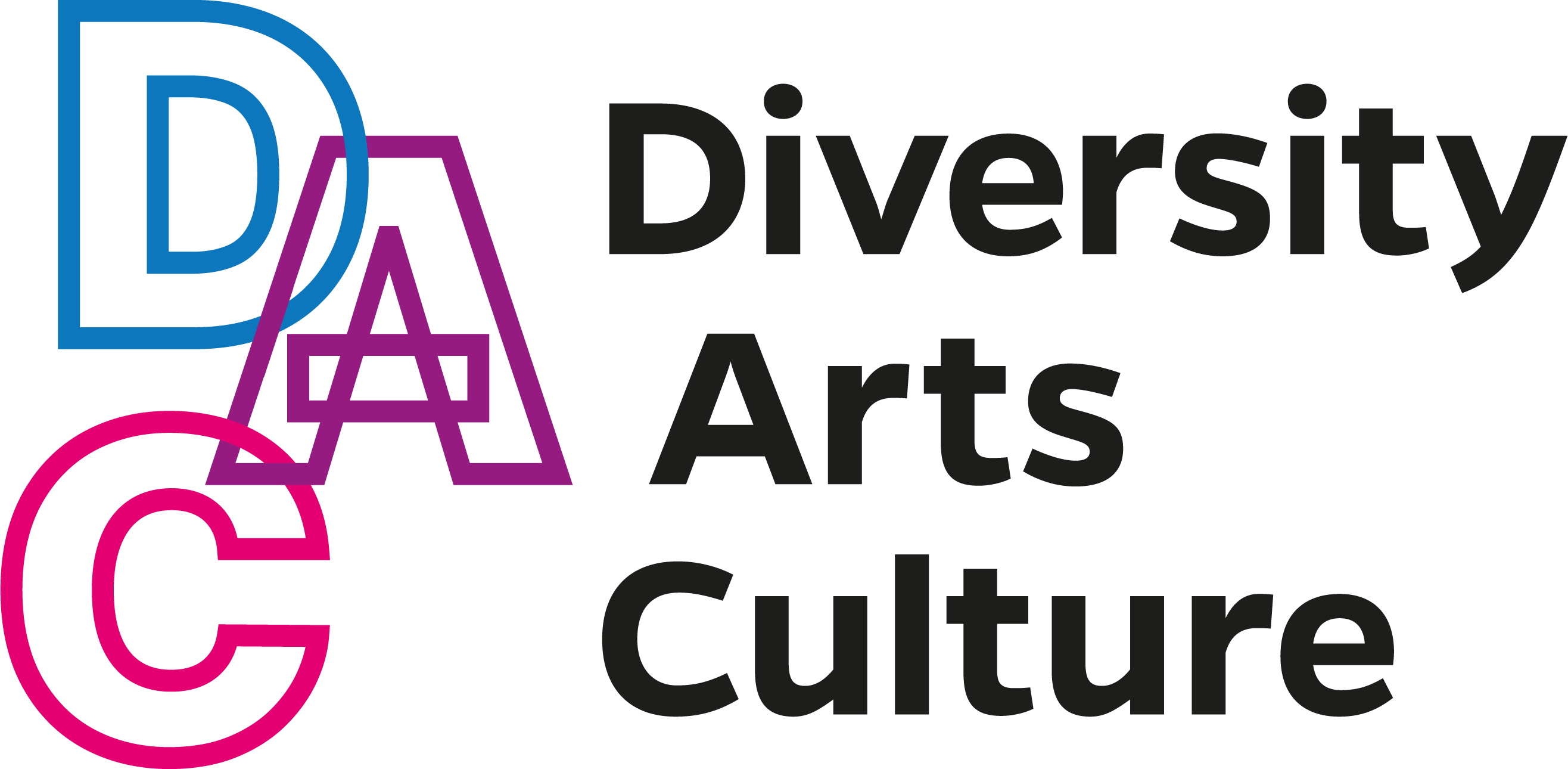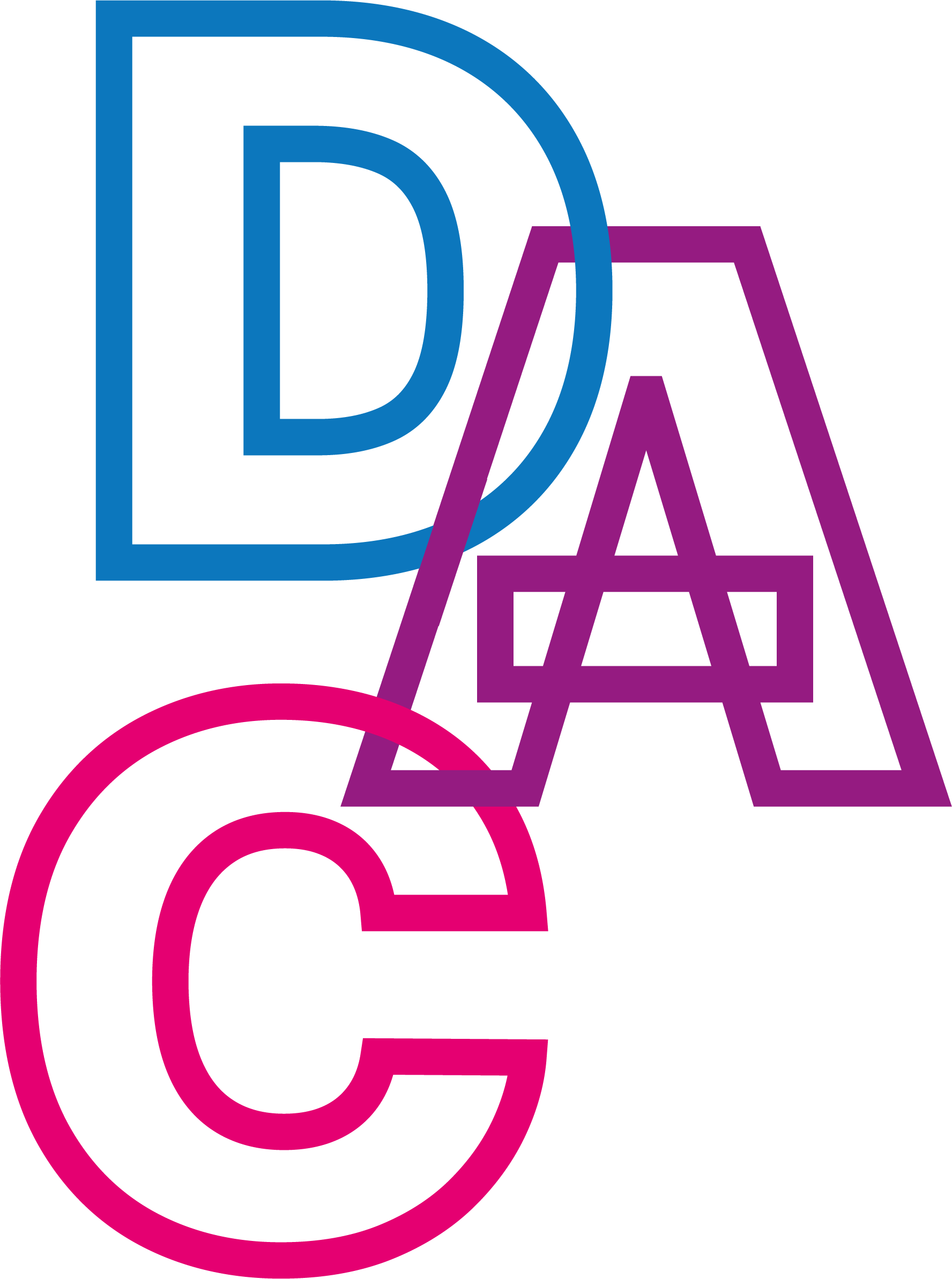Our approach
Art and Culture for Everyone?!
Berlin is a diverse place. Although diversity and equal opportunity should be a matter of course in a publicly funded cultural sector, Berlin’s cultural sector still lacks diversity. Diversity Arts Culture’s mission is to strengthen diversity within the cultural sector: provide equal access to art and culture for everyone and dismantle discrimination within the cultural sector.
Diversity – A Multifarious Term
Many political projects and initiatives within the arts are working with the term “diversity”. Ideas about what diversity means differ greatly. This broad usage of the term may pose a threat to the definition’s accuracy. Generally speaking, we can name at least two central aspects that define diversity:
- the moral-legal aspect
- the economic aspect
Both aspects equate diversity with possibility rather than deficiency. The economic perspective understands diversity as a factor that determines quality and thereby achieves better work outcomes and in the long-run generates economic profit. The moral-legal perspective is based on legal frameworks such as human rights, the constitution or the General Act on Equal Treatment to monitor and build equal opportunity.
In our work we focus on an understanding of diversity, which critically engages power and discrimination. We want to differentiate between two types of definitions: a general definition of diversity based on which all people differ in some ways from one another because they may have different hair colors and hobbies, and a definition of diversity, which critically engages discrimination and looks at differences that lead to discrimination.
Who is missing from the cultural sector?
Our work focuses on those who experience exclusion and discrimination within the cultural sector: all groups that are not adequately represented within the workforce, art programs and audiences and have limited or no access to the cultural sector.
We use the characteristics identified in the General Act on Equal Treatment as a guideline to describe which groups of people are affected by discrimination. The General Act on Equal Treatment considers “discrimination on the grounds of race or ethnic origin, gender, religion or belief, disability, age or sexual orientation” (AGG, §1). Within our work we move beyond these characteristics to also include discrimination based on social origin, social and economic status, as well as, East(-West) socialisation. Our understanding of discrimination is also intersectional, because we work from the basic assumption that different experiences of exclusion usually interact with one another.
Why not just leave everything the way it is?
There are lots of good reasons why we should make the cultural sector more diverse. Here are some examples.
1. New and diverse perspectives offer more exciting programs: Promoting diversity within the cultural sector means being open for creative impulses and innovation.
2. Societal change affects audiences: Many cultural institutions’ established audiences are diminishing. Those who dismantle barriers can therefore increase the size of their audiences.
3. The publicly funded cultural sector is for everyone: Only if we remove barriers and guarantee equitable representation can institutions within the cultural sector be successful at fulfilling their mission.
4. Diversity development meets (inter)national legal requirements. Both the International Covenant on Economic, Social and Cultural Rights (ICESCR) and the UNESCO convention about the protection and promotion of diverse cultural expressions guarantee that everyone has the right to participate in the arts. Especially as it relates to work, the General Act on Equal Treatment prohibits discrimination of the groups named within the act.
Diversity? Yes! But how do we go about it?
Citizens for Europe’s study „Handlungsoptionen zur Diversifizierung des Berliner Kultursektors“ (“Courses of Action to Diversify Berlin’s Cultural Sector”) concludes that anchoring diversity within the cultural sector in sustainable ways is best actualized by creating a "service center for diversity". Citizens for Europe also formulated important principles for diversity development within the study. For example, such principles include: addressing diversity on all hierarchal levels of a cultural intuition, especially with management and assuring that diversity development plays a role in both the fore- and background of an institution. Our work builds on the outcomes of the study and is comprised of the following services:
- We offer consultation to cultural institutions on matters of diversity and initiate diversity-focused structural change within Berlin’s cultural sector
- We develop diversity trainings for art practitioners
- We use empowerment strategies to support underrepresented artists and art practitioners and thereby encourage more diversity within future generations
- We commission the collection of equity data about Berlin’s cultural sector
- We support the cultural administration’s focus on diversity

